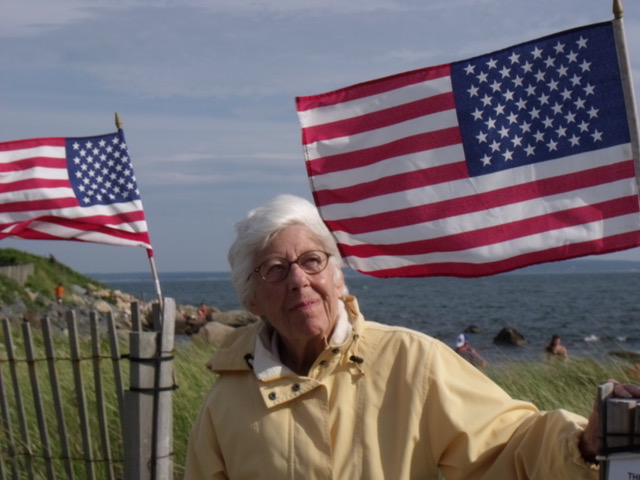Products |
GUEST BUTLER TOM FELS: “My mother may not have preferred her supporting roles, but she knew how to identify an outstanding male lead.”

By
Published: Mar 18, 2024
Category:
Beyond Classification
ABOUT GUEST BUTLER TOM FELS: Considerable history here. In 1969, I was living in a media commune in Western Massachusetts. Conditions were unfavorable. Tom, who was also struggling with an unaccustomed role as a farmer, and I went off to a party in Bennington. I didn’t return. I became a screenwriter and a French chef in Bennington; Tom also moved there, and became a curator and writer. Many exhibitions, articles, and books later, he took up art photography. He’s in the Spring Photography Auction now at Christie’s New York (christies.com, 20 Rockefeller Center, on view March 29 – April 3), with a 72” by 72” multiple cyanotype piece. And as you can see by the essay (below) about his mother, the writing experience shows.
HARRIET SLOANE PRICE (1920-2024)
What more is there to be said about The Greatest Generation? Among other things, that they were not all male, that some hid in plain sight, and that a few lived a long time beyond the era that defined them.
That’s a good snapshot of my mother, Harriet Price, who died recently at the age of 103. Excelling at high school in her native New Jersey, the Depression — and perhaps the Victorian views of her parents — deprived her of the opportunity to attend college. She found work at a nearby women’s dress shop, whose owner, a self-made European immigrant, became her mentor. Encouraged in this relationship, Hattie developed an attitude of independence in both action and thought that served her well over her long life.
She found a partner in this new direction in Bill Fels, a fraternity mate of her older brother, whom she married as he ended his service at the end of WW II. He, too, was escaping a family with a limited vision of his future. Together they built a life in what we now see as the distinct milieu of the post-war period. My father worked in education as Hattie tended the home fires. Among the places they lived in those years were New York City, Connecticut, and New Jersey. I came along in 1946 and my sister in 1949.
My father became president of Bennington College in Vermont. Hattie attended to supportive entertainment, college decoration schemes, an association of faculty wives, and other duties. The liberal, intellectual, and artistically oriented life they carved out for themselves differed notably from the more limited, constrained lives of their parents. These were happy years.
When my father died at the age of 48, Hattie enrolled in college and achieved the BA degree she craved. She moved to Cambridge, Massachusetts, where she worked at both Harvard and Radcliffe before marrying Don Price, an eminent professor, former Rhodes Scholar, and a founder of the Kennedy School of Government. Again, entertaining, travel, and related responsibilities; again, an academic household. My sister and I were by then either in college or recently out. Hattie now had two grown stepchildren as well.
When her second husband became incapacitated by Alzheimer’s Disease, Hattie found him a safe medical harbor, sold their apartment, consolidated their finances, and decamped for the retirement home in nearby Lexington where she spent her last twenty years. She never lost her independent edge, partly befriending, occasionally berating her devoted minders, transitioning from an apartment of her own, to assisted living, to nursing. On her 100th birthday she received congratulations from, among others, her senator, Elizabeth Warren, and Queen Elizabeth of England. The town of Lexington issued a special proclamation.
What I see in Hattie is a new America emerging after the Depression and the following World War — and the grit and adaptability it takes to create an independent life in the face of the adverse winds of the time, including outworn values and bias against women. In the long run I think Hattie succeeded, probably more than she would admit. She was never truly satisfied with her lot. Time placed her in secondary roles to two prominent husbands; this was the available answer she had chosen in order to escape into the world of the mid-twentieth century. In her journal I found a passage in which she lamented the handmaiden role to which she had acquiesced. Although it had been her choice, the regret was obvious, despite her evident success.
Her strong ability as a judge of character was clear in viewing her two marriages. She may not have preferred her supporting roles, but she knew how to identify an outstanding male lead. In the end, like all of us, she retained some of the traits of the world she had left behind. In her early days in the nursing ward one of her helpers asked me, “Has she always had servants?” The short answer: no.

